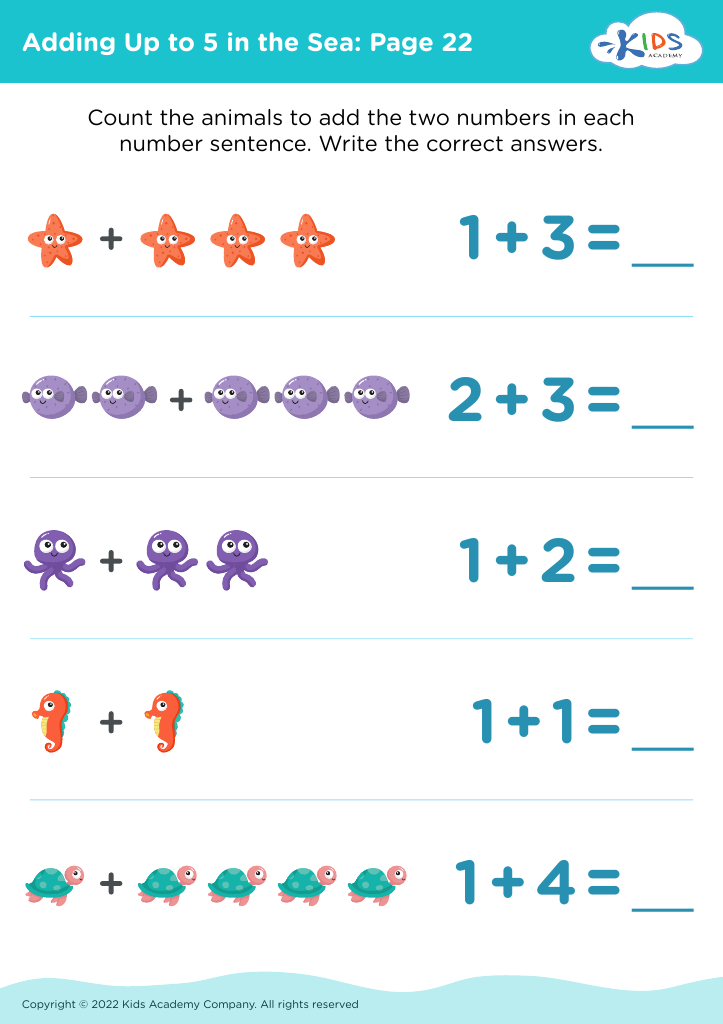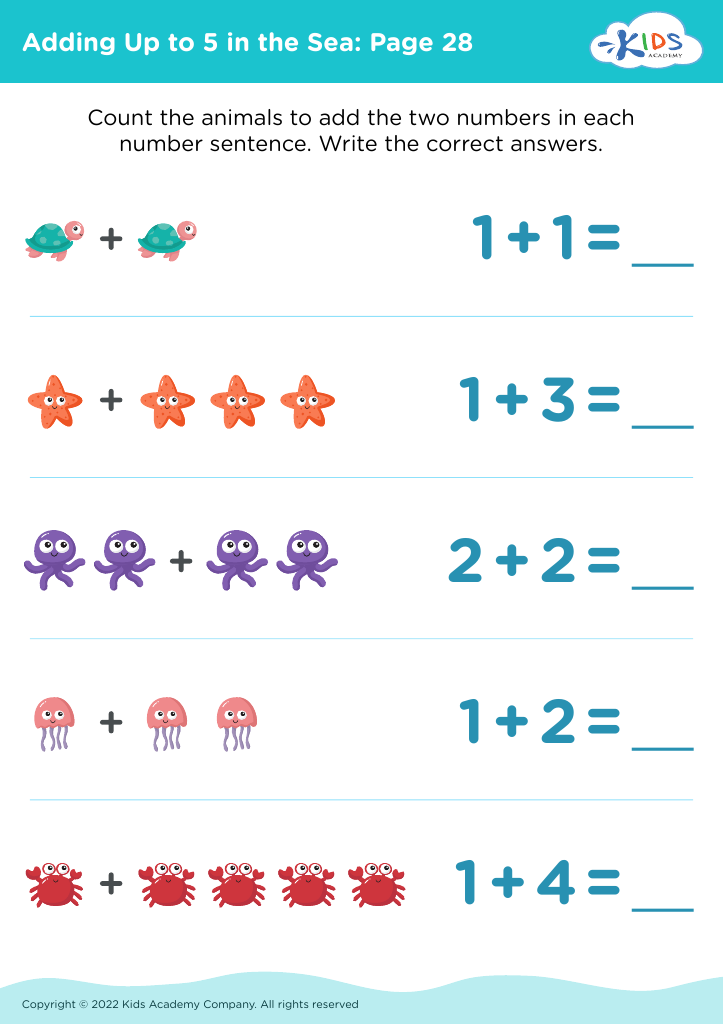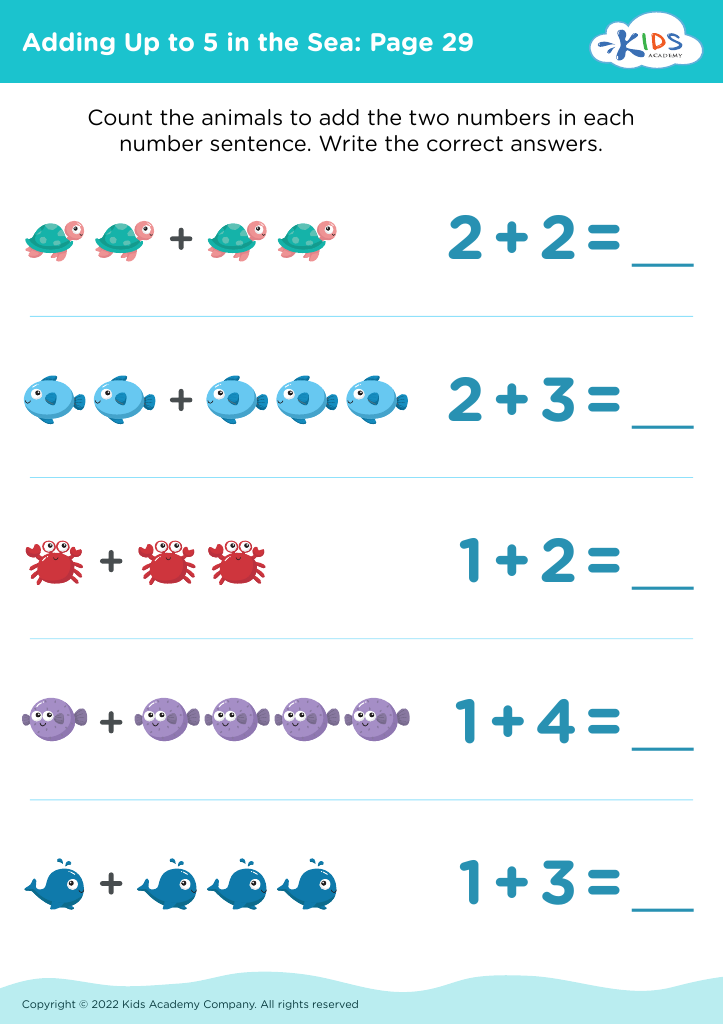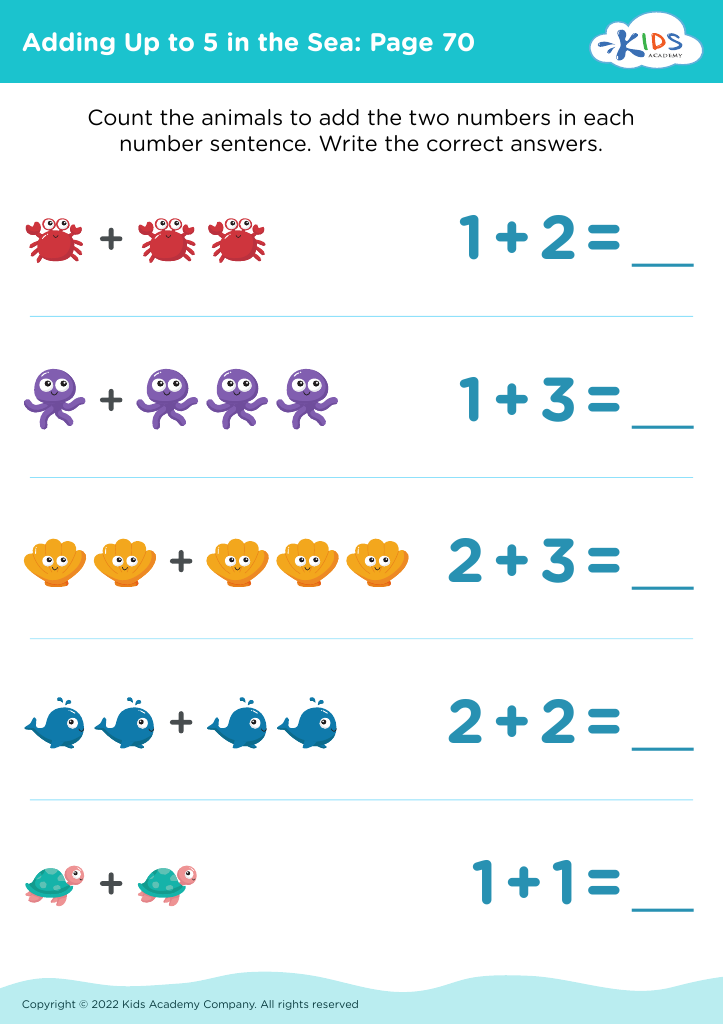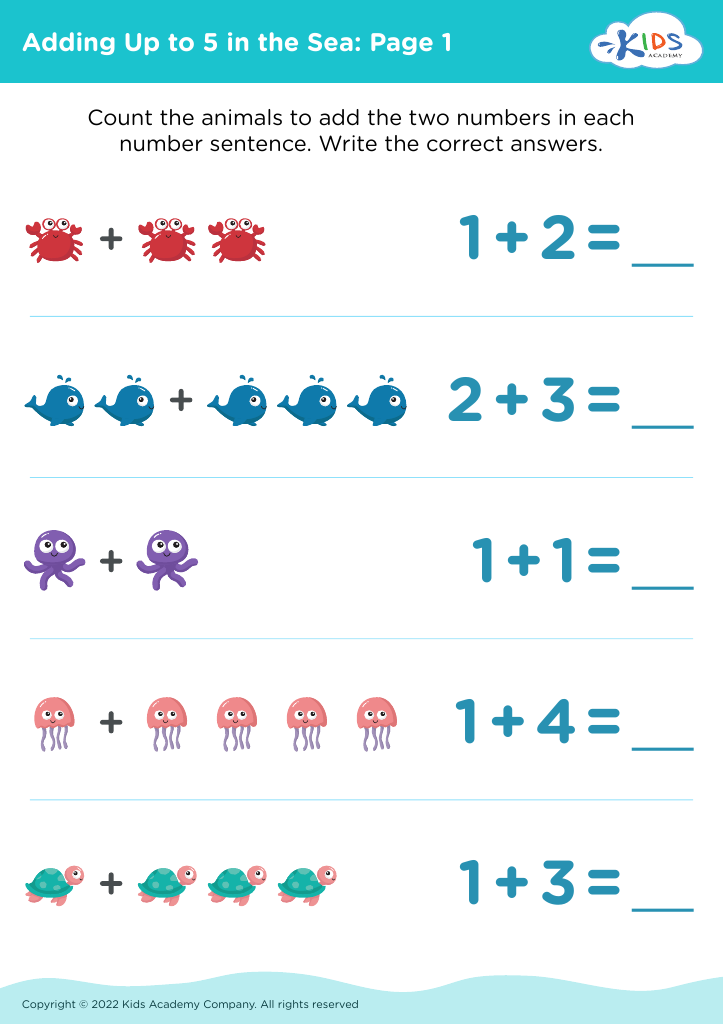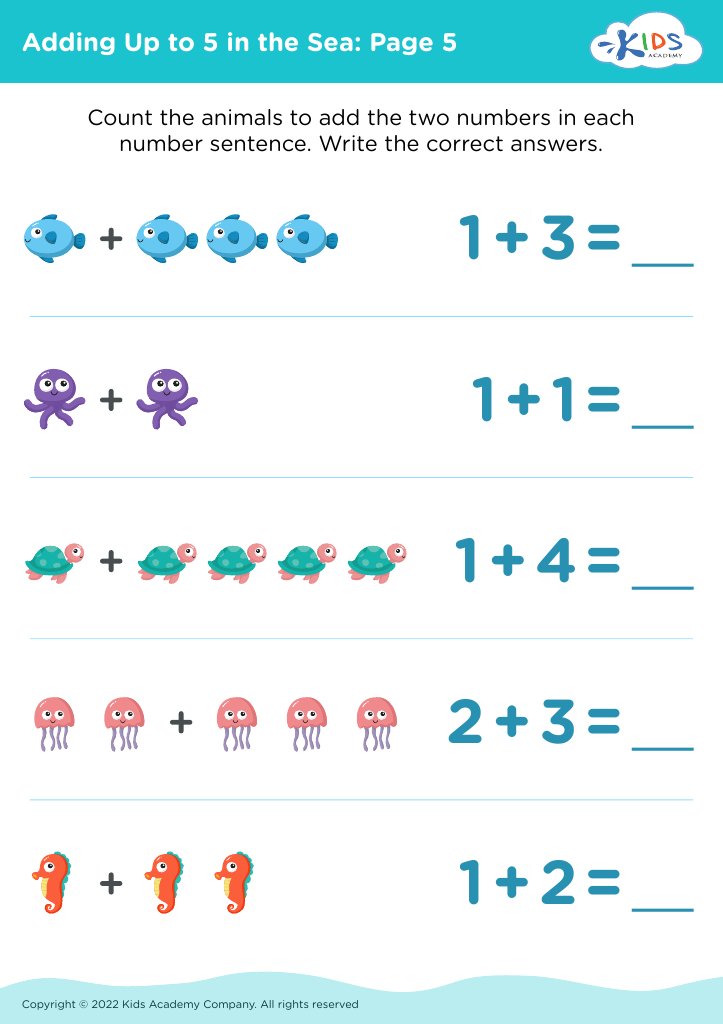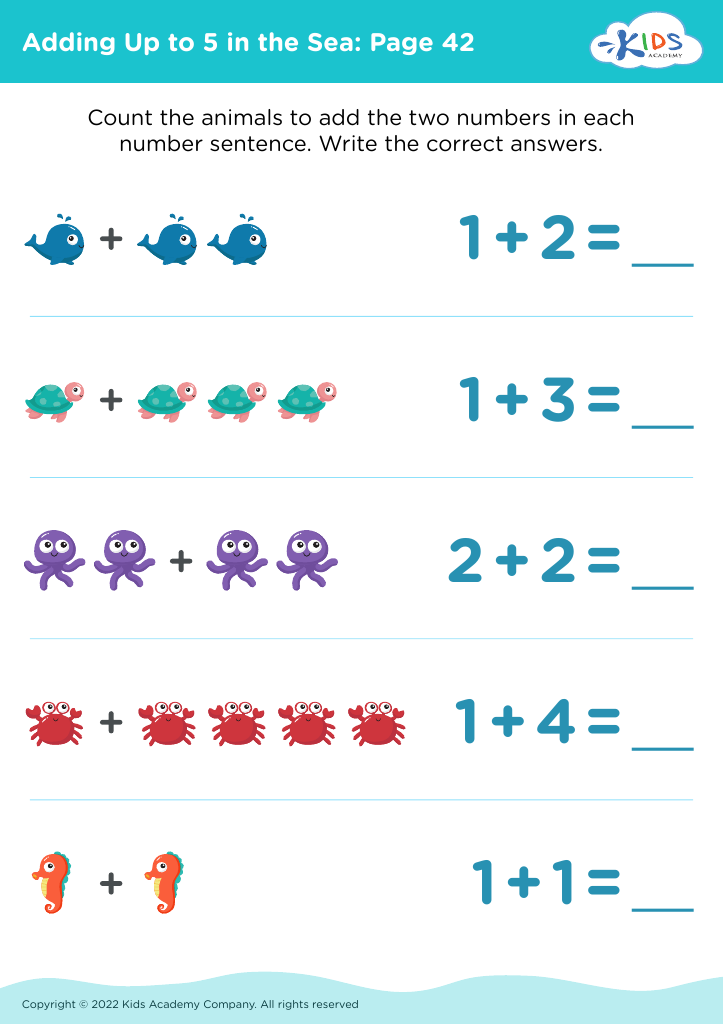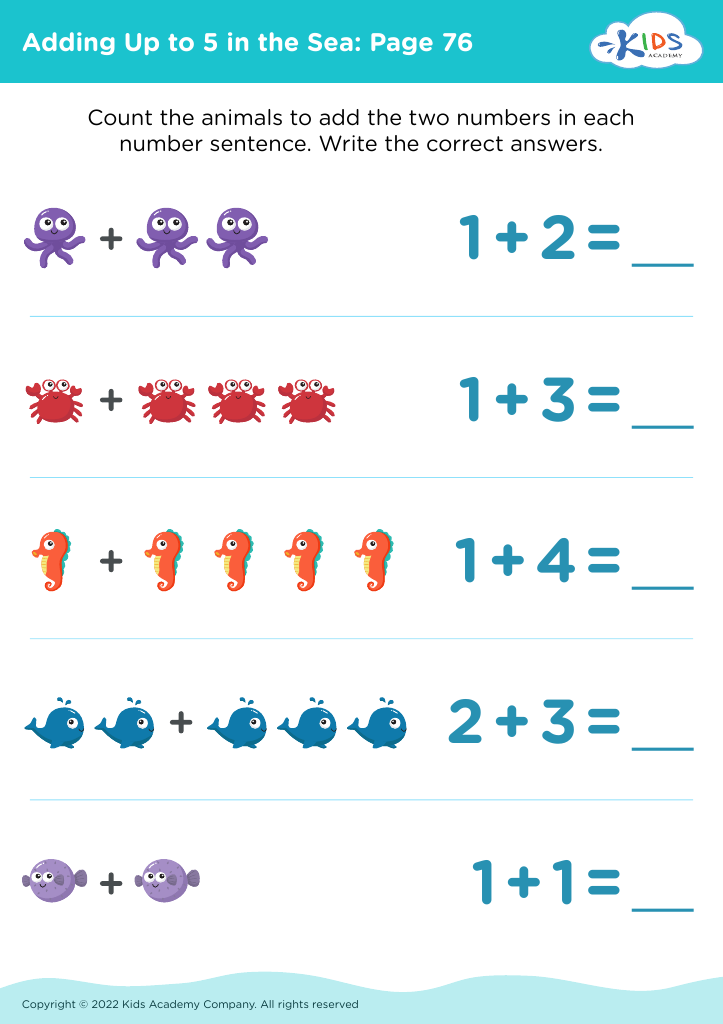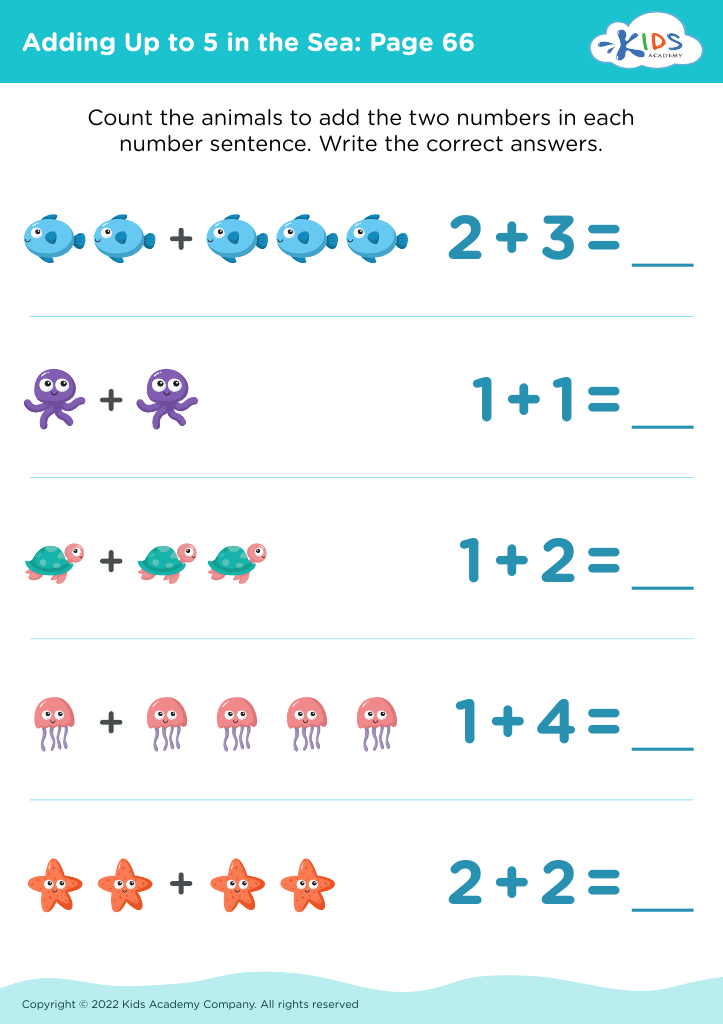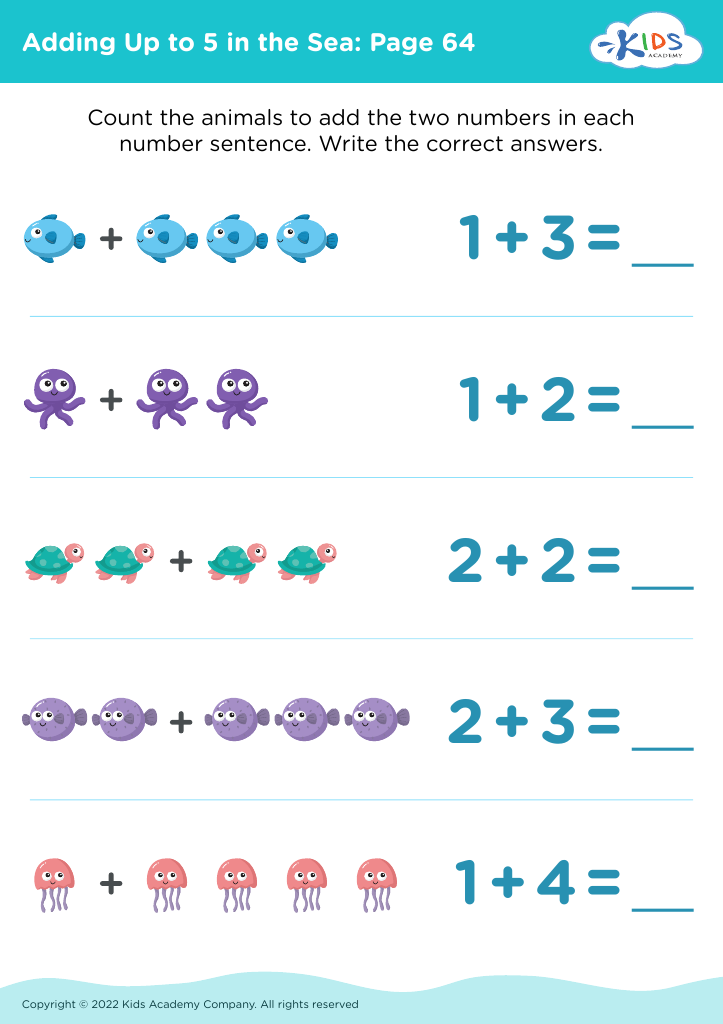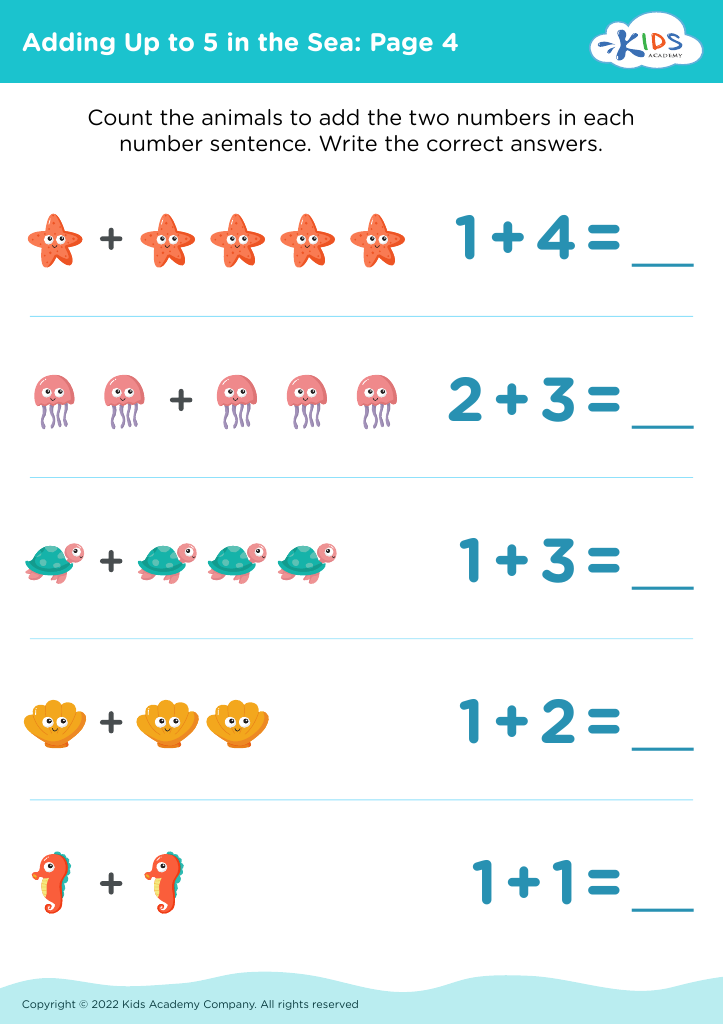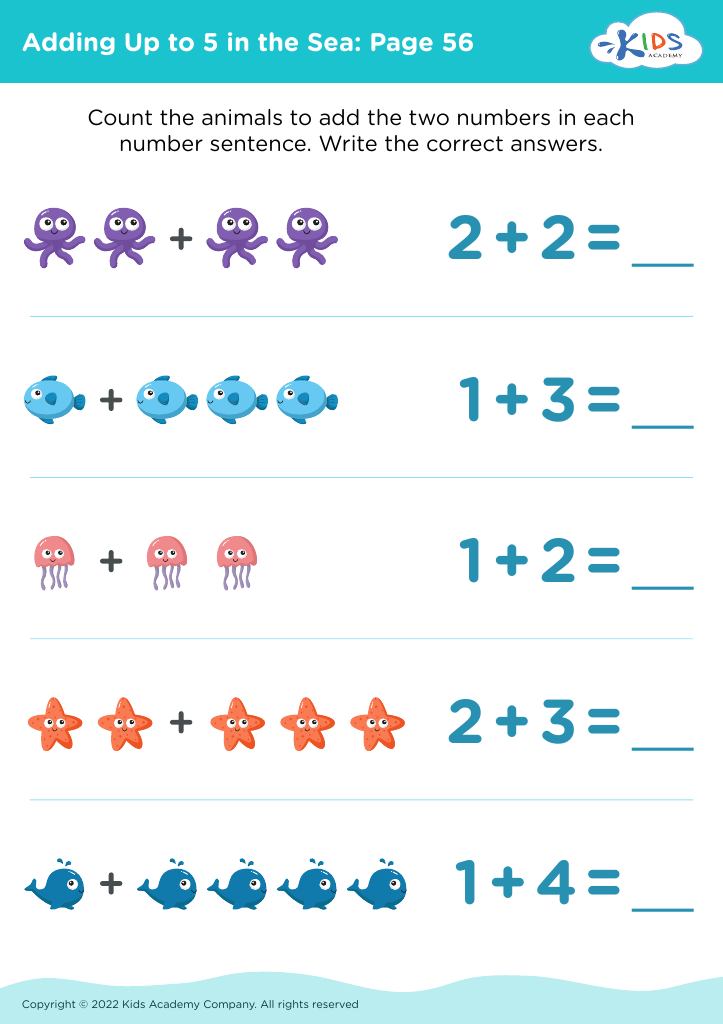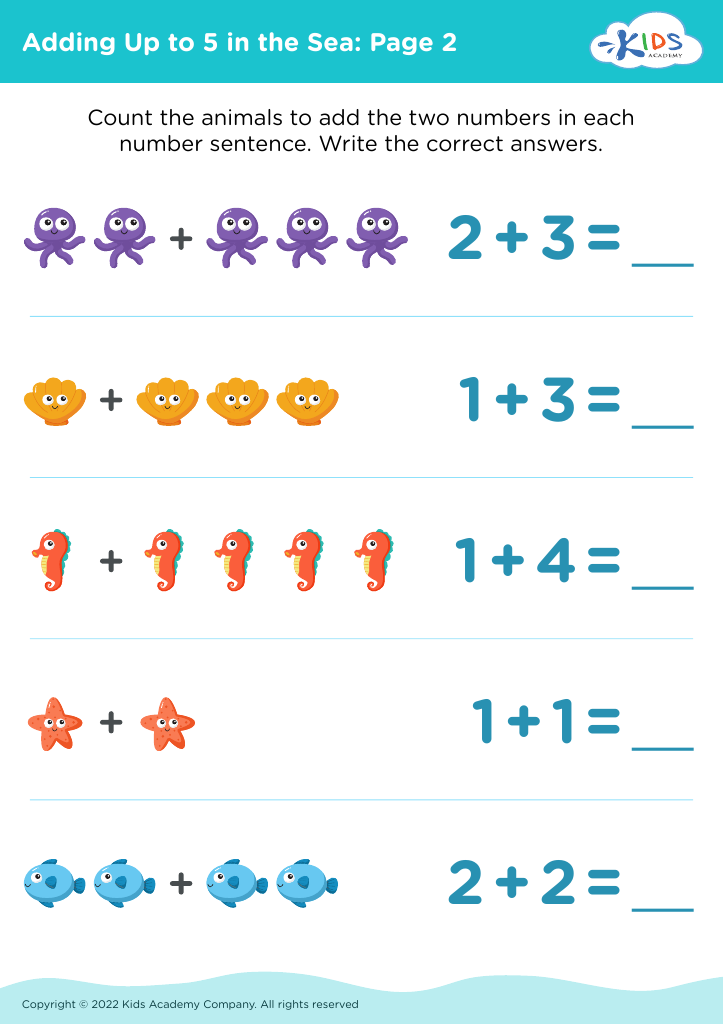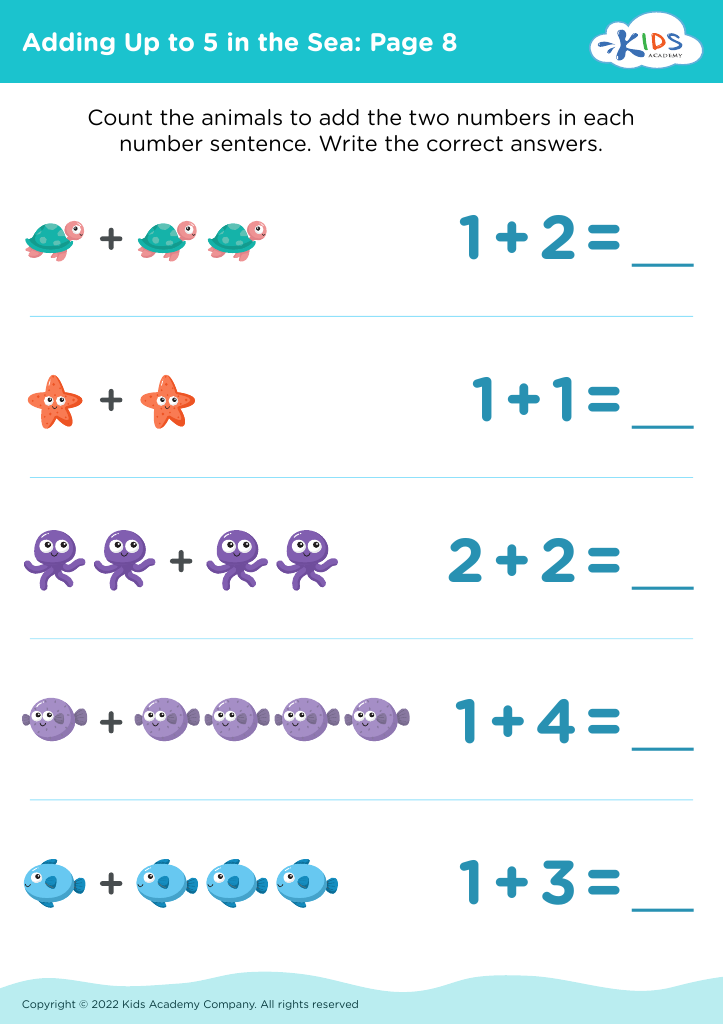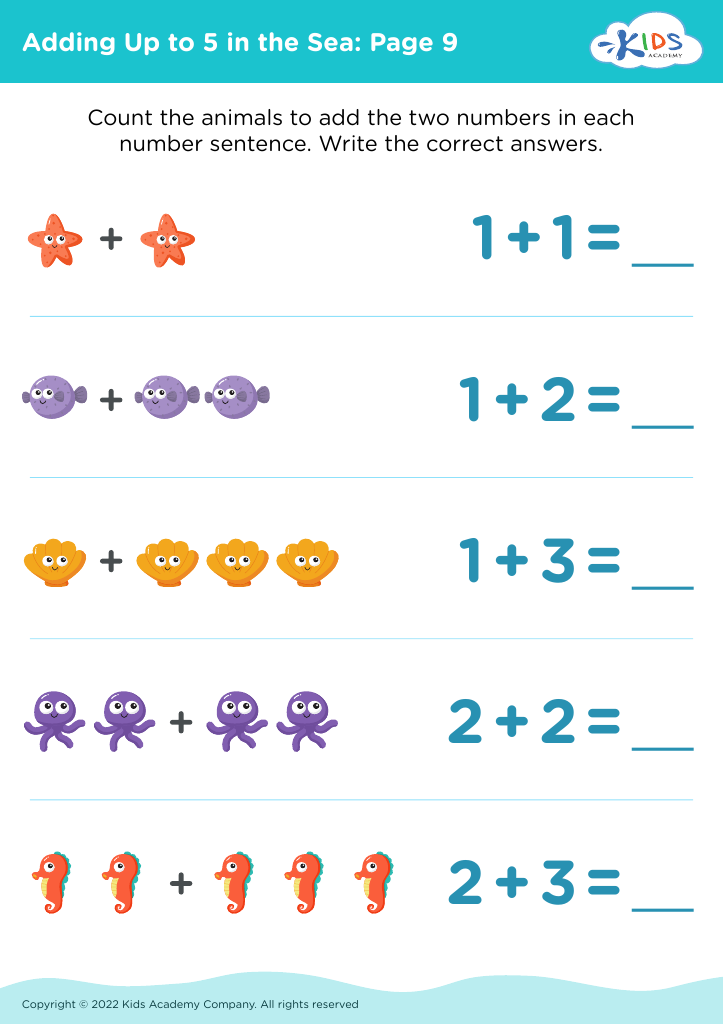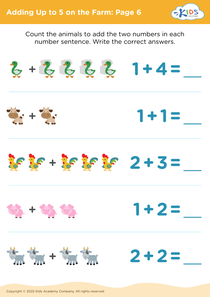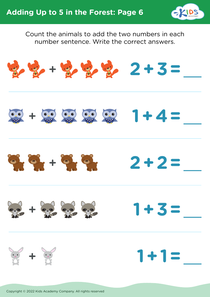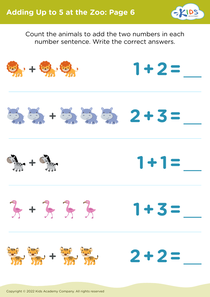Addition skills Adding in the Sea Worksheets for Ages 3-7
15 filtered results
-
From - To
Dive into a world of fun with our “Adding in the Sea Worksheets” designed for children ages 3-7! These engaging worksheets help young learners master addition skills through colorful, ocean-themed activities that captivate their imagination. Each worksheet introduces fundamental concepts of addition using aquatic creatures, making learning both enjoyable and educational. Perfect for preschool and early grade classrooms, these printables promote number recognition and problem-solving skills. Immerse your child in delightful mathematics as they explore addition in a vibrant underwater environment. Start their addition adventure today and watch their confidence soar with every completed worksheet!
Addition skills for young children, particularly through engaging methods like "Adding in the Sea," are essential for multiple reasons that parents and teachers should prioritize. Firstly, foundational math skills foster critical thinking and problem-solving abilities. When children engage in playful activities associated with addition, they learn to recognize patterns and relationships in numbers, crucial skills that form the backbone of mathematics as they advance.
Moreover, early exposure to addition enables children to develop a positive attitude toward math, transforming what can often be perceived as a daunting subject into a fun and enjoyable experience. Activities like "Adding in the Sea" utilize vibrant imagery and themes that captivate young minds, allowing them to learn through play—an essential aspect of childhood development.
Additionally, mastering basic addition skills enhances children's confidence. As they successfully solve addition problems, they build a sense of accomplishment that encourages them to tackle more complex mathematical challenges in the future. Overall, prioritizing addition skills—including fun, thematic approaches like "Adding in the Sea"—cultivates not just mathematical knowledge, but also a broader love for learning in young children.
